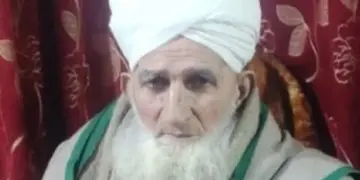By: Qasim A. Moini
DESPITE Islam’s lofty ideals, in many Muslim societies, including Pakistan, we often fail to see these beliefs put into practice. Perhaps that is why, by divine design, certain religious acts and commemorations are ordained to remind us to practise what we preach.
For example, the five daily prayers are supposed to inculcate humility within believers, as we prostrate ourselves before the Creator, smothering our egos and thanking Allah for His bounties. The obligatory fasting in the month of Ramazan is supposed to create a sense of solidarity with the hungry and destitute, so that we may experience the pangs of hunger felt by those who cannot afford two square meals. Similarly, zakat and other religious taxes are meant to prevent the hoarding of wealth and encourage its redistribution.
Just like these divine reminders, every Muharram, as the new Islamic year begins, and particularly on Ashura, its 10th day, the human conscience is jolted out of its slumber to remember a man who sacrificed all he had for truth and justice, and to resist the tyrannical order that was devouring the Islamic polity.
This was, of course, no ordinary man: Imam Husain was a true reflection of his noble grandfather, the Holy Prophet (PBUH), and his venerable father, Hazrat Ali, and only a man of his calibre and character could have accepted the challenge at hand.
The Imam left the safety of Madina for the burning sands of Karbala — invited as he had been by thousands of inhabitants of the Iraqi garrison city of Kufa, who later betrayed him — not for any material gain or to capture the government, as some simplistic or revisionist observers have noted, but for one central purpose: to “enjoin people to do good and to restrain them from evil”. Is this not the essence of religion?
Under the Umayyad imperial banner, Islam’s egalitarian ethos was being replaced with a xenophobic tribal order that aimed to promote Arab supremacy, and that considered non-Arab believers ‘lesser’ Muslims. This was in direct contradiction with the instructions of the Holy Prophet (PBUH) who had made it clear during his farewell Haj that no Arab had superiority over a non-Arab, and vice versa, and that taqwa (piety) was the sole determinant of a person’s status.
This was only one of the dangerous deviations the Umayyad state had promoted, while Yazid was singularly unfit to head the Islamic polity. In short, if Imam Husain had not taken his valiant stand, Islam would have faced grave danger from the resurgent forces of jahiliya within a century of its birth. In his own words, as quoted by Dr Ibrahim Ayati in A Probe into the History of Ashura, the Imam took the field “…to fight against this social and religious corruption” and added that Allah has “considered my martyrdom to be the remedy and the means of reforming the present state of affairs”.
Some ask that — considering martyrdom’s elevated status in Islamic thought — why weep over and mourn Husain’s supreme sacrifice? Indeed Imam Husain is considered Syed-us-Shuhada (master of the martyrs) and there is no doubt about his victory in Karbala, when blood prevailed over the sword. The fact that we remember his sacrifice 14 centuries after the event is testament to this. However, it is only human nature to grieve over the circumstances of his martyrdom. As one orator has observed, the ultimate tragedy of Karbala was that the finest of men had been mercilessly slain by the most base individuals on earth.
For Muslims, who profess love for the Holy Prophet, remembering the brutal slaying of Husain, his kinsmen and companions brings tears to the eyes, especially when the hadith that “Husain is a part of me. .…” is recalled. But even for believers of other faiths, the Imam’s valorous stand and his being brutally slain evoke reactions of awe and sorrow.
Indeed, Karbala must be remembered for time immemorial as every year it rekindles the flame of devotion, courage and sacrifice within receptive hearts. Imam Husain is not for any sect, religion or race, but for all of humanity. And it is nothing but a divine mystery that centuries after the Imam and his companions were brutally killed, and the women and children of his household were cruelly marched through the streets of Kufa and Damascus as prisoners, Husain’s victory is as resplendent as ever.
Today, for the wretched of the earth, for the oppressed and the destitute, whom the Quran refers to as mustadafin, Imam Husain is a beacon of light and a guide, giving hope to the hopeless and strength to all those who wish to take a stand against the oppressors of this age, and every age.
Courtesy Dawn



